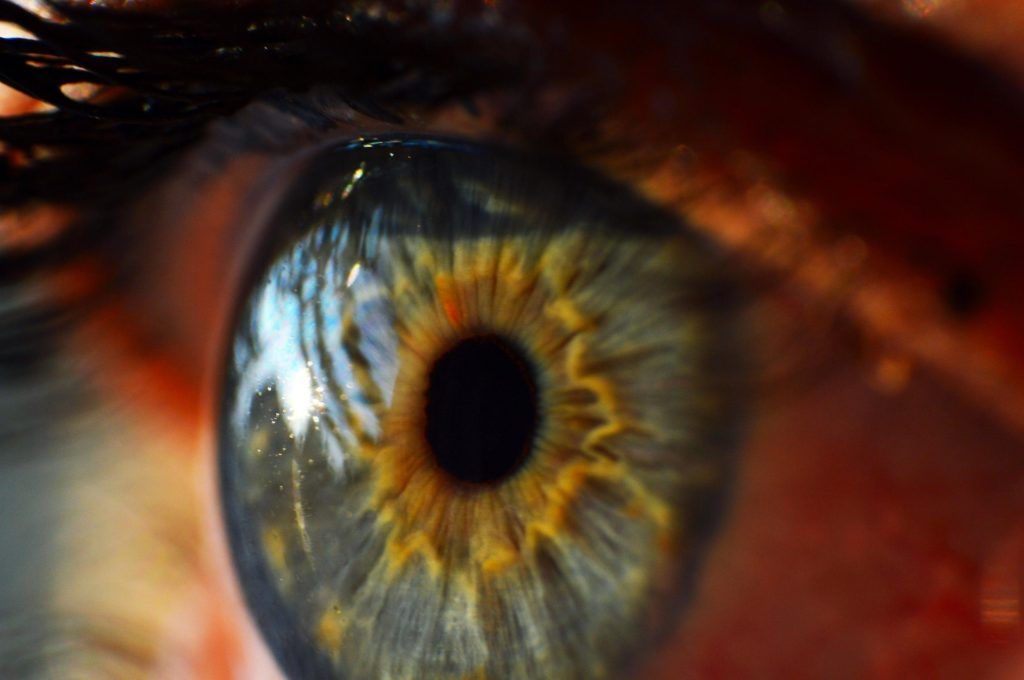Corneal Ulcer Symptoms & Treatments

The cornea is an important part of the eye, both protecting it and helping you see. Despite its protective power, the cornea can become damaged and develop painful open sores called corneal ulcers . When this occurs, it’s important to see your eye doctor immediately so you can receive treatment.
The cornea is the crystalline outer layer of your eye. Unfortunately, it can become damaged and develop an open sore known as a corneal ulcer . This can be due to an infection or inflammation. These sores are a medical emergency as they can result in permanent damage. Your eye doctor can provide treatment to heal the wound and prevent scarring.
What Is the Cornea?
The cornea covers the iris and the pupil and accounts for approximately two-thirds of the eye’s total focusing power. Light first passes through the cornea as it enters the eye, helping light to focus on the retina and create the images that we see. The cornea acts as a protective layer of our eyes as well as helping us to see.
The cornea has three parts. Starting from the outermost layer:
- Epithelium: the outermost barrier that protects the eye from bacteria, debris, and dust
- Stroma: the middle layer that helps give the cornea its shape and 90% of its thickness
- Endothelium: balances fluid with the cornea so that it stays thin and crystal clear
Although the cornea acts as a natural barrier for our eyes, it can also become damaged. This can result in open sores on the eye that require medical treatment to heal. When this happens, they are considered a medical emergency and require immediate treatment.
Click here to learn about 7 other common cornea problems our ophthalmologists can help diagnose and treat!
What Is a Corneal Ulcer?
A corneal ulcer is an open sore that can form when the cornea becomes:
- Infected
- Injured
- Extremely irritated
An ulcer on the cornea may initially seem like conjunctivitis ( pink eye ).
A corneal ulcer usually results from an:
- Eye infection (bacterial, fungal, or viral infections)
- Improper use of contact lenses
- Scratches on the eye
An eye infection can occur in a number of forms such as bacterial keratitis , acanthamoeba keratitis , and herpes simplex keratitis which can affect your immune system. Contact lenses are another common cause. It’s important to take your contacts out at night or else you may develop a corneal ulcer. Scratches on the eye can become more irritated, developing into an ulcer.
In addition, severe dry eye syndrome or an eyelid disorder that prevents proper eyelid function and causes the cornea to dry out can also cause open sores.
To read our complete guide to ulcers on the cornea, click here !
Symptoms
Corneal ulcers are serious, and can permanently damage your vision or even cause blindness if left untreated. Symptoms of corneal ulcers may include:
- Redness of the eye
- Severe pain and soreness of the eye
- Pain when blinking
- Feeling like something is stuck in your eye
- Pus or discharge
- Blurry vision
- Tearing
- Sensitivity to light
- Eyelid swelling
- A white spot on your cornea that may or may not be visible when looking in the mirror
Some of these symptoms are common in other eye problems. Schedule an exam with one of our eye doctors so you can get the correct diagnosis and the treatment that you need.
Risk Factors
Any eye injury, eye infection, or condition that contributes to the cornea drying out increases the risk of developing a corneal ulcer. You can reduce your risk by caring for and wearing contact lenses properly and by wearing protective glasses when doing any activity that poses a risk to your eyes. Your risk increases if you:
- Wear contact lenses
- Have dry eyes
- Have injured or scratched the cornea
- Use steroid eye drops
- Have had cold sores, shingles, or chicken pox
- Have an eyelid disorder that prevents proper functioning
Not washing your hands is another risk factor for developing the condition. Your hands can carry the germs that can infect your eye, resulting in an ulcer on your cornea. This includes handling plant material that carries ulcer-causing germs. It is also very important to not sleep in your contact lenses!
Diagnosis
Corneal ulcers cannot accurately be self-diagnosed. Ophthalmologists diagnose corneal ulcers by using a special dye that lights up any damage to your cornea and a special microscope called a slit lamp . If an infection has caused your corneal ulcer, your ophthalmologist may also take a small sample to determine the type of infection in order to properly treat the condition.
Treatment
Antibiotic, antifungal, or antiviral eye drops are typically prescribed to treat corneal ulcers. In some cases, an injection of medication near the eye may be recommended. In more severe cases when vision loss or significant scarring has occurred, or when the ulcers can’t be treated with medication, surgery may be required. In these cases, a corneal transplant replaces the damaged cornea with a healthy donor cornea to restore vision.
The important thing to remember if you’re experiencing any pain or discomfort in your eye is to not wait it out. Seek care immediately. Baptist Eye Surgeons have emergency appointments available and can usually see you on the same day you call, with no referral needed.
Do you suspect that you have developed an ulcer on your cornea? Contact us today to schedule your appointment!
The clear, crystalline lens on the surface of your eye is the cornea. While it is designed to protect your eye, it can become damaged as well. Corneal ulcers are open sores on the cornea due to injury, infection, or other causes. They can result in permanent damage to your vision, so it’s important to see your eye doctor immediately for a diagnosis and treatment.
Baptist Eye Surgeons is an ophthalmological practice in Knoxville, TN, and Morristown, and Servierville. Give us a call at 865-579-3920 for more information or to schedule an appointment .
*This blog was originally published on January 21, 2019. It has been updated for clarity and freshness.





